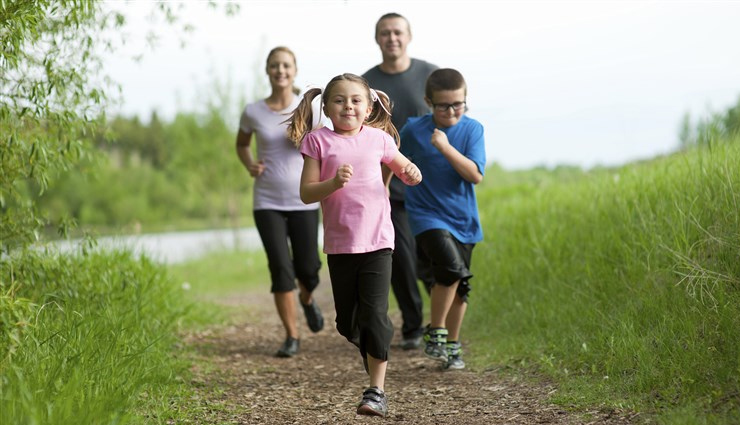- Home›
- Healthy Living›
- Coronavirus : Know How To Boost Your Child's Immunity In This Tough Situations
Coronavirus : Know How To Boost Your Child's Immunity In This Tough Situations
By: Kanika Fri, 27 Mar 2020 5:46:09

Colds and flu are a fact of life for kids, but there are smart steps you can take to help reduce their number of sick days.Nothing pains a parent more than seeing their child fall easy prey to infectious diseases. We all are aware of the importance of a balanced diet for children.COVID-19 causes a fever, cough, and trouble breathing. Symptoms are a bit like those people have with a cold or the flu. The virus can be more serious in some people, and may lead to illnesses like pneumonia.
Experts are still investigating how COVID-19 spreads. In general, coronavirus spread through droplets sent into the air when people cough or sneeze. The virus can spread in communities from one person to another, and through contact with surfaces that have germs on them. Let's find out other ways to supercharge your kid's immunity...

Carrots, Green Beans, Oranges, Strawberries
They all contain carotenoids, which are immunity-boosting phytonutrients, says William Sears, M.D., author of The Family Nutrition Book. Phytonutrients may increase the body's production of infection-fighting white blood cells and interferon, an antibody that coats cell surfaces, blocking out viruses. Studies show that a diet rich in phytonutrients can also protect against such chronic diseases as cancer and heart disease in adulthood. Try to get your child to eat five servings of fruits and veggies a day. (A serving is about two tablespoons for toddlers, 1 cup for older kids.)

Boost sleep time
Studies of adults show that sleep deprivation can make you more susceptible to illness by reducing natural killer cells, immune-system weapons that attack microbes and cancer cells. The same holds true for children, says Kathi Kemper, M.D., director of the Center for Holistic Pediatric Education and Research at Children's Hospital, in Boston. Children in daycare are particularly at risk for sleep deprivation because all the activity can make it difficult for them to nap. How much sleep do kids need? An infant may need up to 16 hours of crib time a day, toddlers require 11 to 14 hours, and preschoolers need 10 to 13 hours. "If your child can't or won't take naps during the day, try to put her to bed earlier,"

Breast-feed your baby
Breast milk contains turbo-charged immunity-enhancing antibodies and white blood cells. Nursing guards against ear infections, allergies, diarrhea, pneumonia, meningitis, urinary tract infections, and sudden infant death syndrome (SIDS). Studies show that it may also enhance your baby's brain power and help protect her against insulin-dependent diabetes, Crohn's disease, colitis, and certain forms of cancer later in life. Colostrum, the thin yellow "premilk" that flows from the breasts during the first few days after birth, is especially rich in disease-fighting antibodies, says Dr. Shubin. The American Academy of Pediatrics recommends that moms exclusively breastfeed for the first six months of life. If this commitment isn't realistic, aim to breastfeed for at least the first two to three months in order to supplement the immunity your baby received in utero.

Exercise as a family
Research shows that exercise increases the number of natural killer cells in adults—and regular activity can benefit kids in the same way.To get your children into a lifelong fitness habit, be a good role model. "Exercise with them rather than just urge them to go outside and play," There are lots of indoor games in which boost immunity like table tennis, skipping etc.





